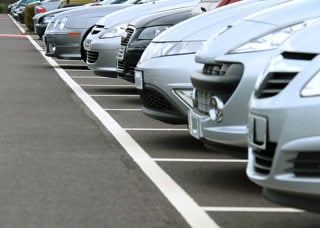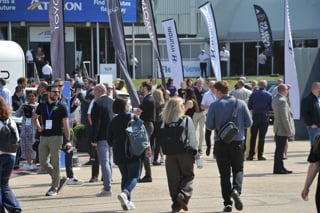FN: How did the strategy overcome these challenges?
GR: We cut the AMAP rate from 40p (the level at the time) to 25p per mile.
To ensure staff weren’t penalised, we communicated that they would qualify for tax relief at the new rate so would be no worse off, but it reduced the cost to the organisation.
We ensured staff obtained line manager approval to use grey fleet vehicles and set out a plan to identify the highest mileage users.
We reported to directors quarterly with the 10 highest mileage users and presented these people with individual travel plans to help reduce mileage, pointing them to more efficient and safe travel options.
We introduced a travel decision tree with the grey fleet shown as a last resort.
FN: How did you influence or change the profile of grey fleet vehicles?
GR: We capped CO2 emissions at 140g/km and had a policy of no mileage reimbursement for any vehicle with
higher CO2 emissions.
We wanted cars that had a minimum of four stars for occupant protection in the Euro NCAP crash tests.
Staff had to provide evidence that their own vehicles were insured for business use, as well as serviced according to the manufacturers’ guidelines, have a minimum level of breakdown assistance, an MOT certificate where applicable, and valid vehicle excise duty.
Essentially, we were able to build a grey fleet profile that mirrored the pool car fleet.
FN: What were the results of these changes?
GR: We witnessed an 86% reduction in grey fleet mileage, going from 500,920 in 2004/5 to 69,052 in 2011/12. But this is continuing to fall year-on-year, with the latest figures for 2012/13 at 64,107 miles.
We’ve seen a £180,000 saving in annual grey fleet mileage payments compared with 2004/05.
We’ve reduced annual CO2 output by 145 tonnes helping meet organisational targets for CO2 reduction, and implemented a 69% reduction in grey fleet drivers over the same period, increasing utilisation in alternative methods of travel as well as telephone and video conferencing.
It has also helped us reduce risk and increase duty of care compliance.
FN: Since winning the award, the organisation has evolved into a much larger body with the Countryside Council for Wales merging with The Environment Agency Wales and the Forestry Commission Wales to become Natural Resources Wales. What fresh challenges does this bring?
GR: This has come at the right time for me. I think we might have reached the limit of what could be achieved with the CCW fleet in terms of cost savings and improved utilisation.
There will be areas where we can share best practice on the NRW fleet.


















Login to comment
Comments
No comments have been made yet.